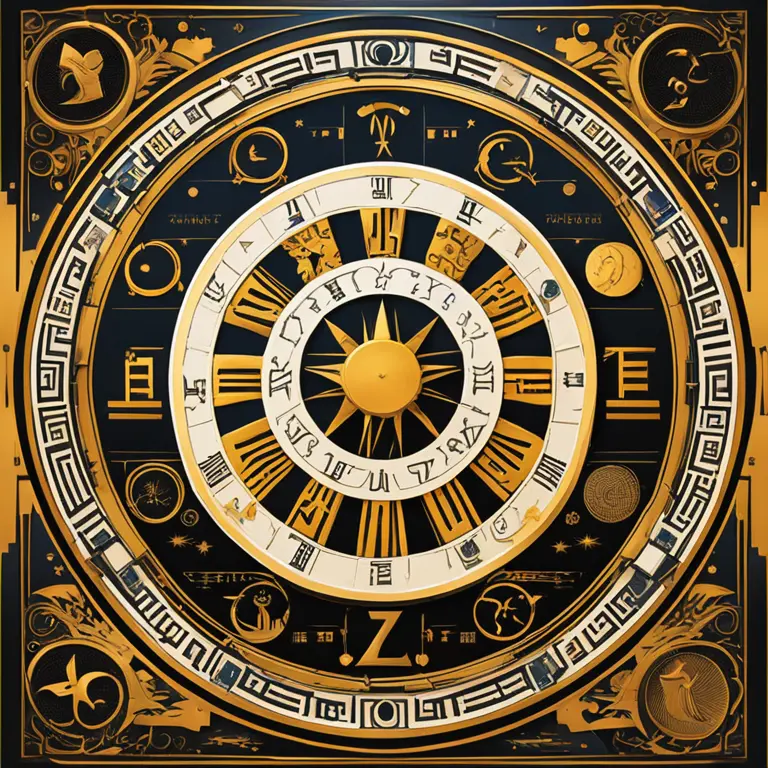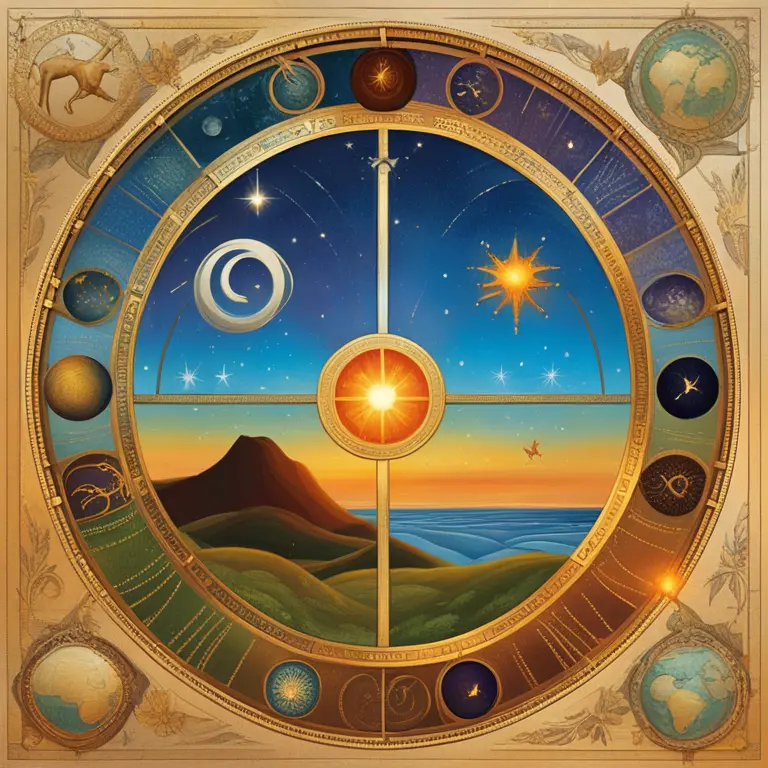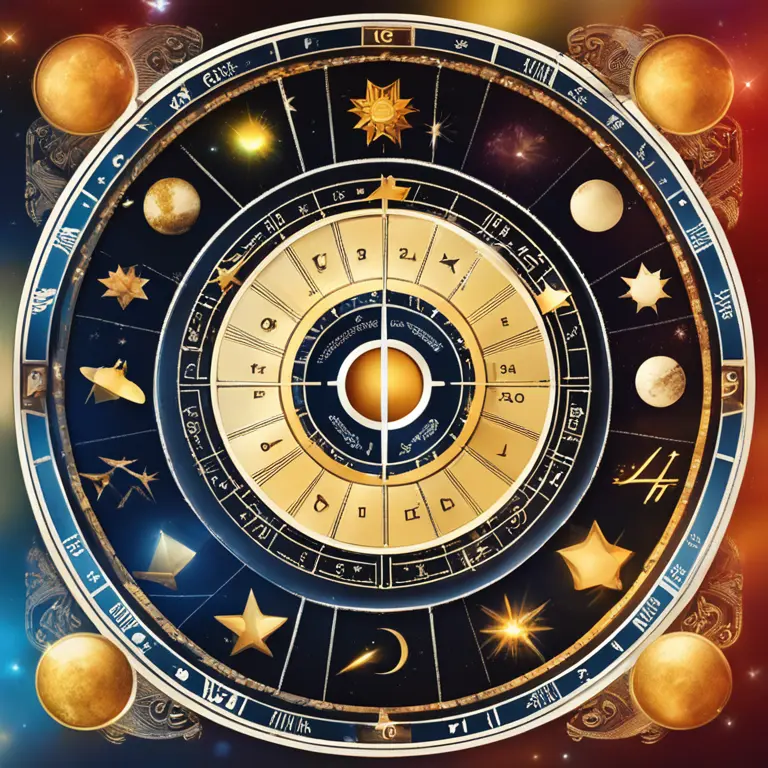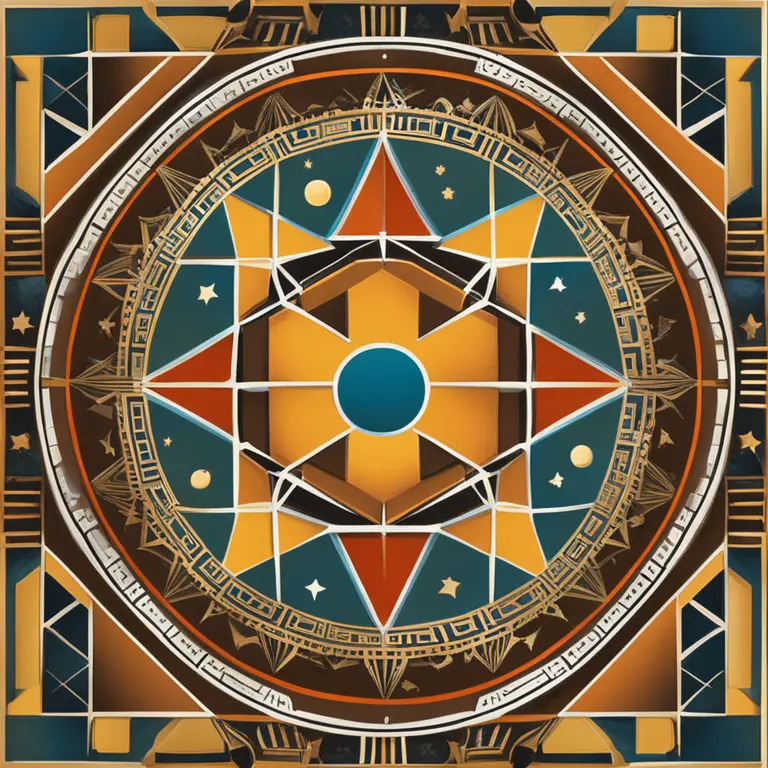
The Origins of Zodiac Signs: An Astrological Journey
Delve into the ancient roots of the zodiac as we trace the origins and significance of these celestial symbols in astrology.
article by Priya Deshmukh
The Celestial Zodiac Foundation
The concept of the zodiac is deeply entrenched in human history, dating back to ancient civilizations which gazed at the stars in wonder. These early astronomers noted patterns in the sky, particularly a certain band where the planets seemed to traverse consistently. This band, split into twelve distinct segments, each represented by unique symbols and figures, came to be known as the zodiac. Its creation is a testimony to humanity's enduring quest to find meaning in the cosmos, a tradition that guides us even as we move into 2024 and beyond.

Ancient Civilizations and Star Patterns
Our journey into the zodiac's history begins with the Babylonians, who, more than 3,000 years ago, identified constellations and associated them with myths and deities. As time passed, their interpretations laid the groundwork for Hellenistic astrology, which the Greeks and Romans later adopted and refined. Consequently, each zodiac sign acquired its own set of characteristics and myths, reflecting the beliefs and observations of the time. This fascinating melding of cultures and ideas illustrates how intertwined our ancestors were with the stars.

The Zodiac in Modern Astrology
In contemporary astrology, the twelve zodiac signs are more than mere constellations; they serve as markers for astrological forecasting and personality analysis. As we look towards the future, with forecasts stretching into 2024 and further, these signs lend a structured approach to the predictions and insights that many seek. Astrologers reference the zodiac to delineate horoscopes, informing individuals about potential future events, personal tendencies, and compatibility in relationships.

Seasonal Significance and Solar Connection
The signs of the zodiac are also intimately connected to the Earth's seasons. Each sign correlates with a thirty-degree arc of the Earth’s orbit around the sun. Aries kicks off the astrological new year at the spring equinox, marking a period of rebirth and new beginnings. This cycle continues, reflecting the seasons' changing nature and imbuing each sign with seasonal qualities that influence the astrological interpretations relevant to our times.

Personalizing the Zodiac’s Wisdom
The popularity of horoscopes is a testament to the personalized nature of astrological readings. An individual's horoscope, determined by the precise location of the sun at their birth, provides a unique astrological blueprint. Engaging with this personalized information has become a ubiquitous part of modern culture, with individuals often seeking guidance on personal and professional matters based on their astrological sign.
The Enduring Legacy of Star Signs
The zodiac’s enduring legacy reflects humanity's universal desire to seek patterns and meaning in life. Throughout history, and even as we proceed into the future, these celestial symbols continue to captivate us, offering insights into our collective and individual experiences. They stand as a bridge between the ancient and modern worlds, reminding us of our shared gaze upon the stars.
Published: 2/5/2024
Modified: 2/6/2024
More predictions
Come back here soon to learn more about yourself and your future


The Foundations of Horoscope Houses
Learn the functions of each horoscope house and their significance in astrology to gain insights into your life path and personality.


The Astrological Houses: A Guide to Cosmic Chambers
Discover the significance of astrological houses in your natal chart, offering insights into every facet of your life. Grasp the cosmic influences of each house in this illuminating article.


The Role of Dominant Houses in Astrology
Discover the influence of dominant houses in your astrological chart and how they shape your life experiences and character traits.